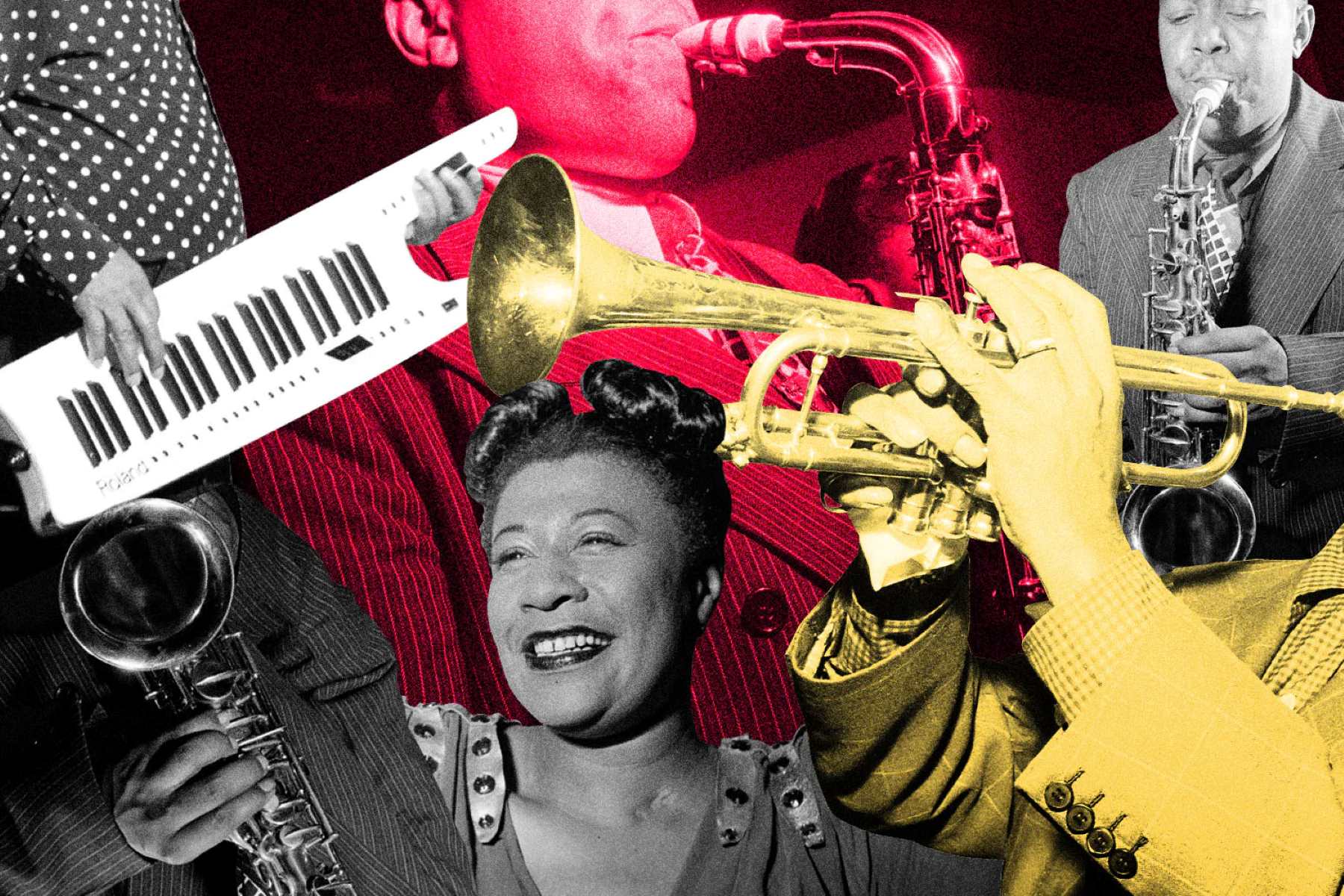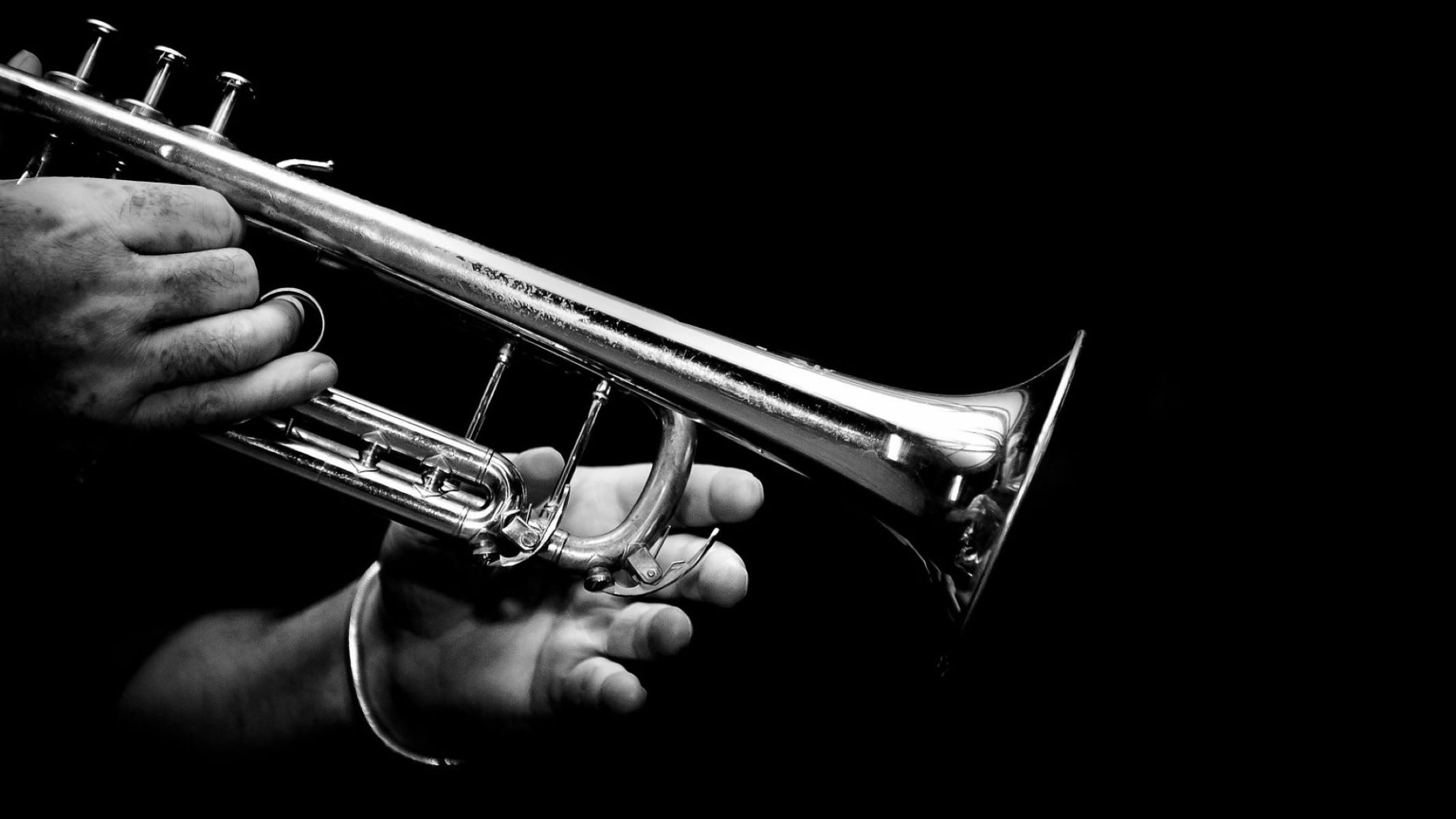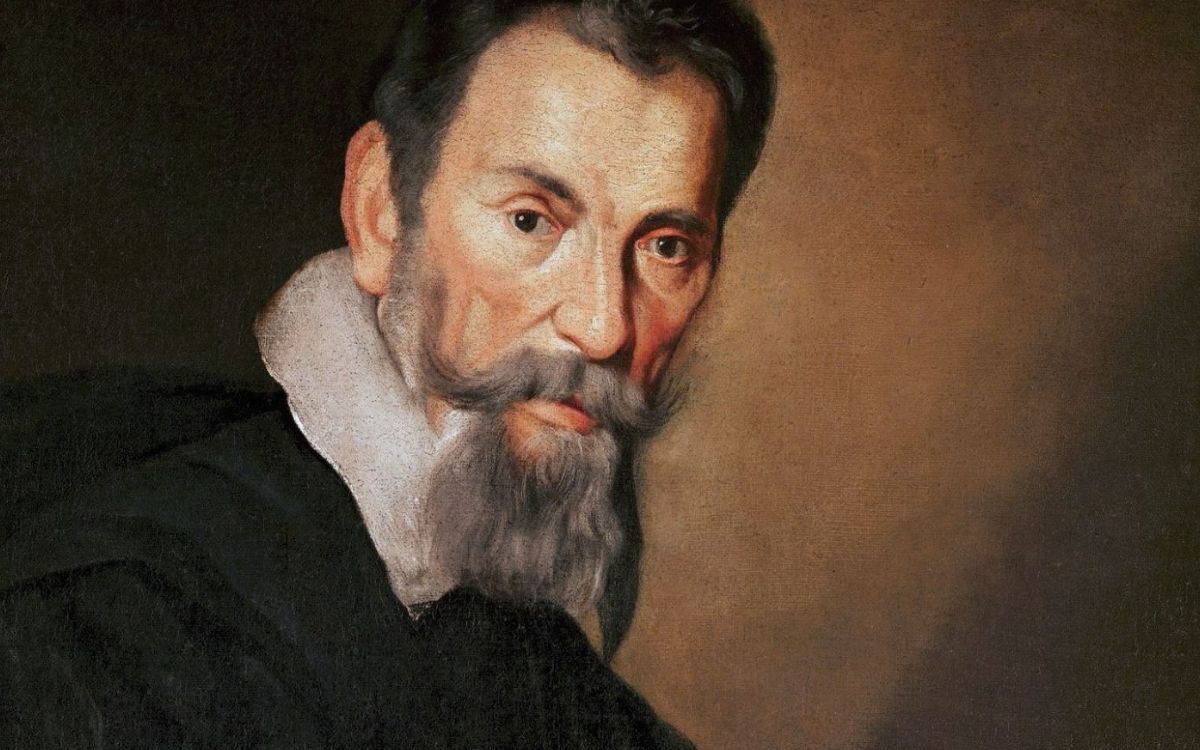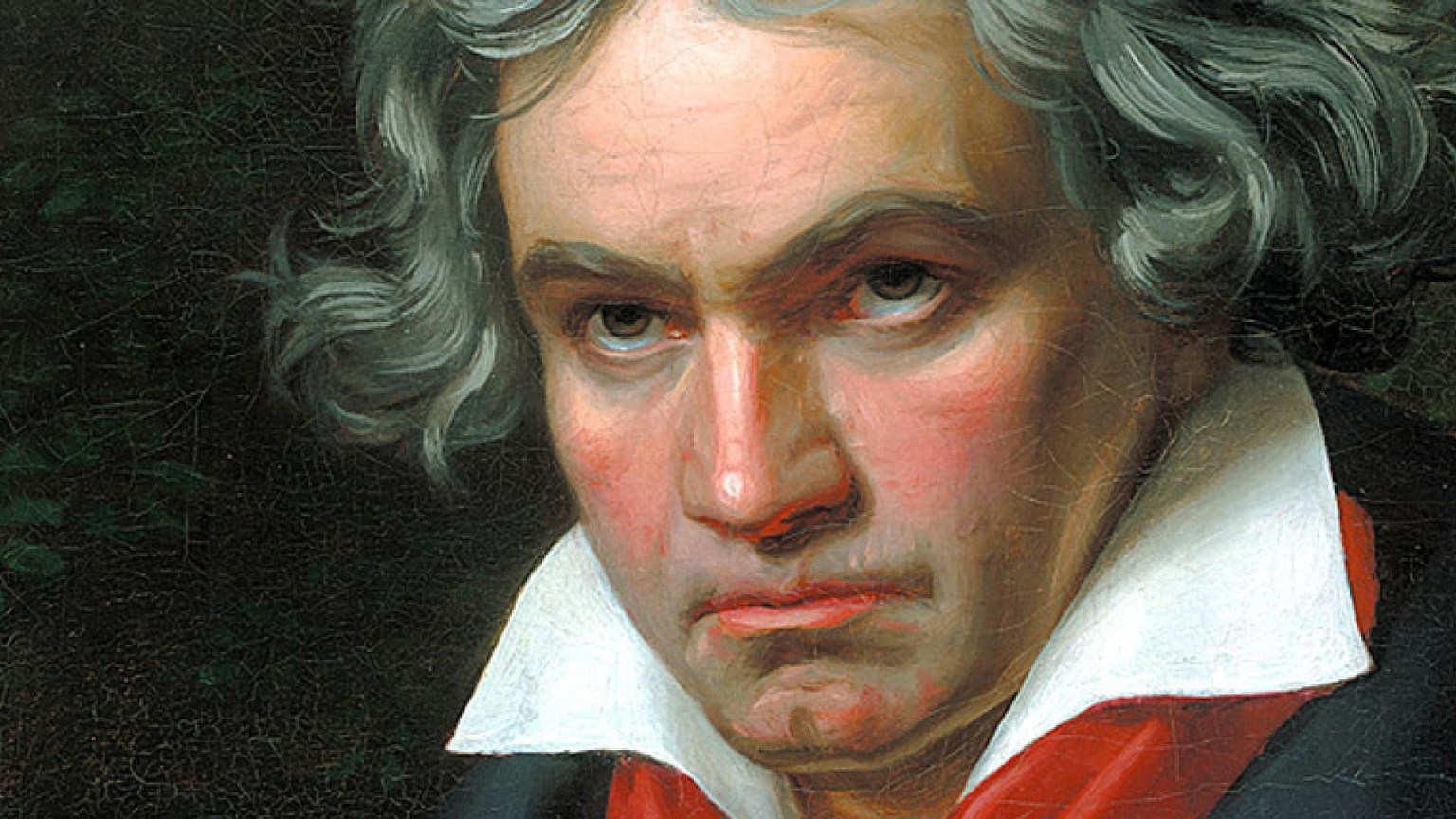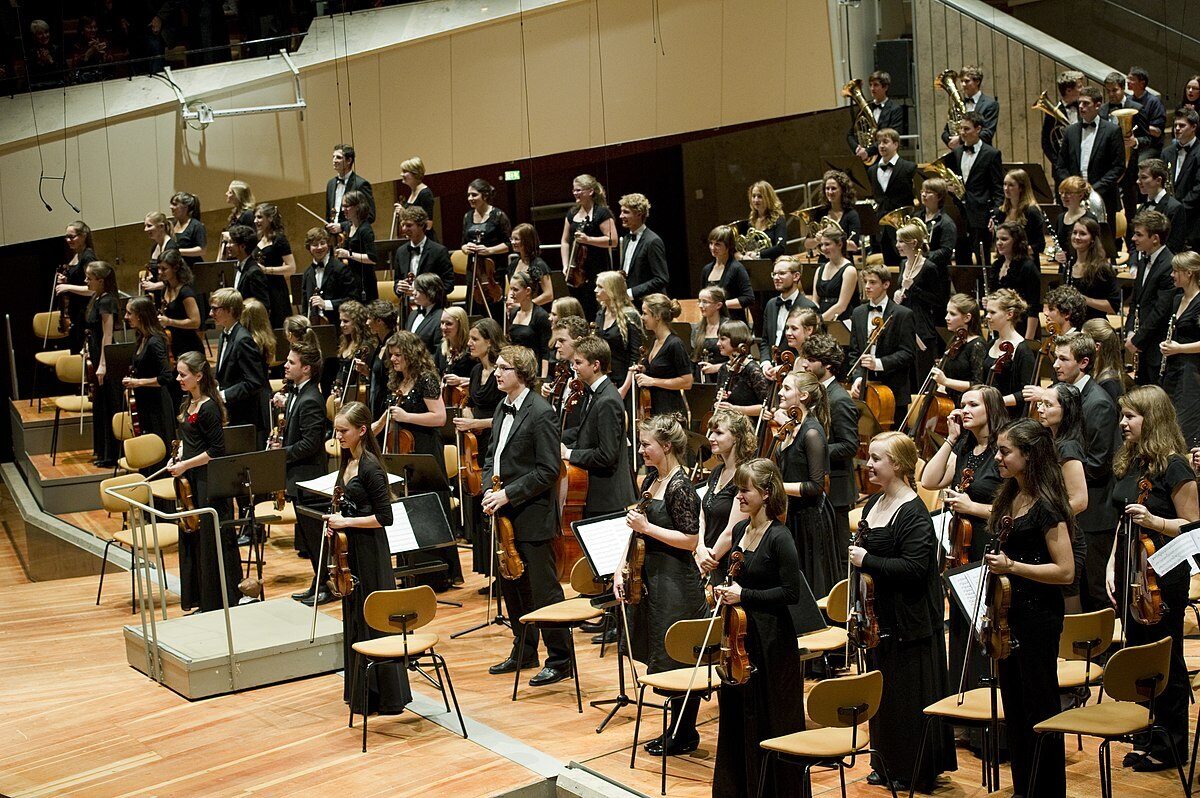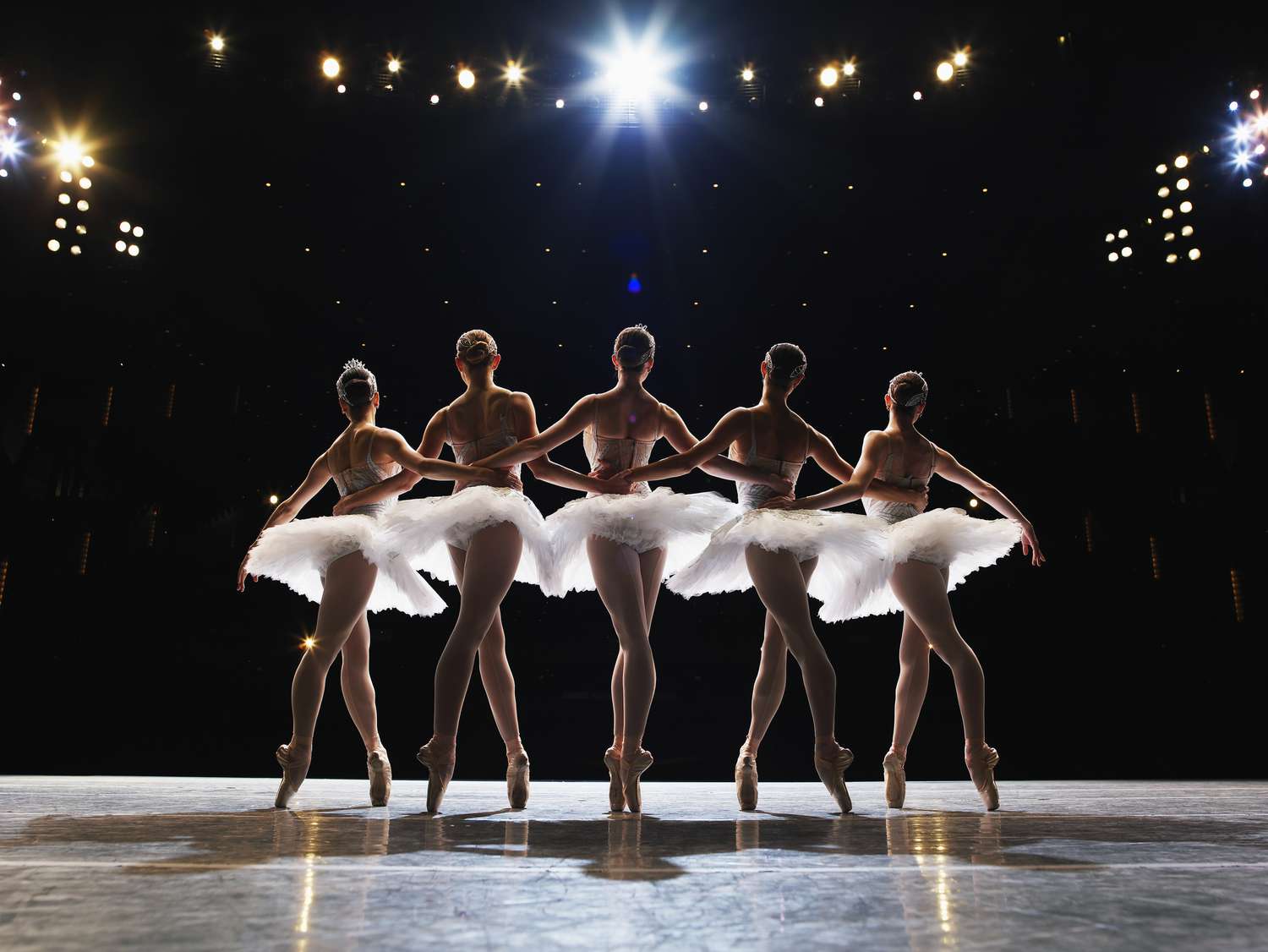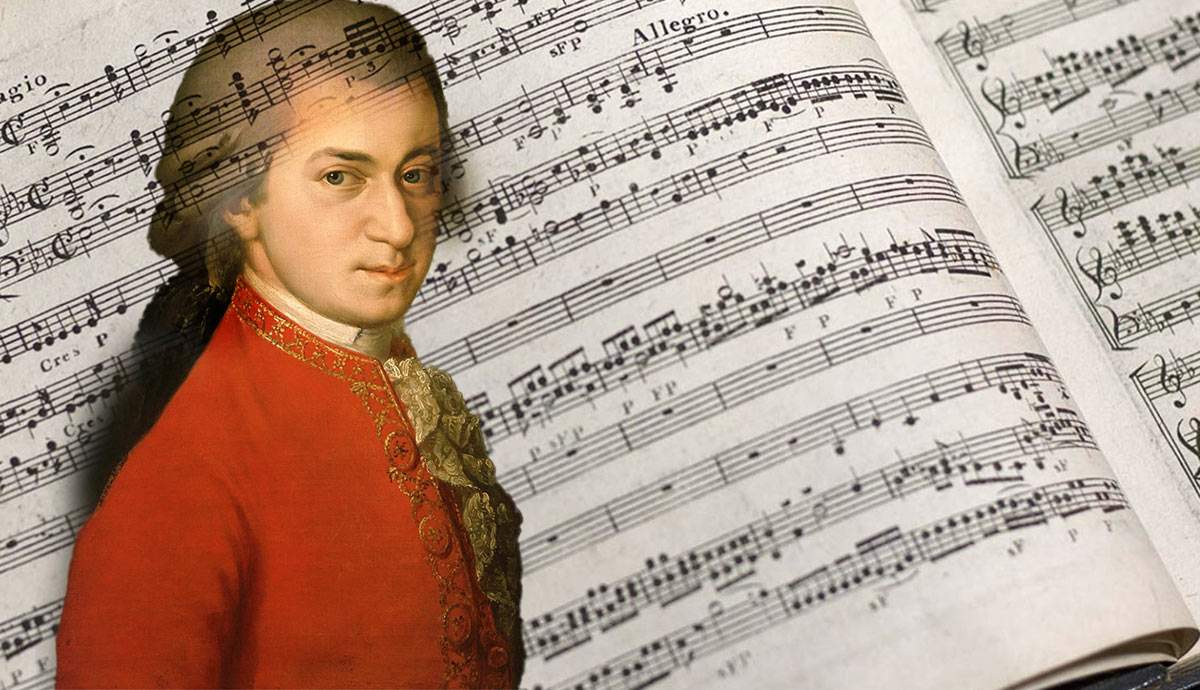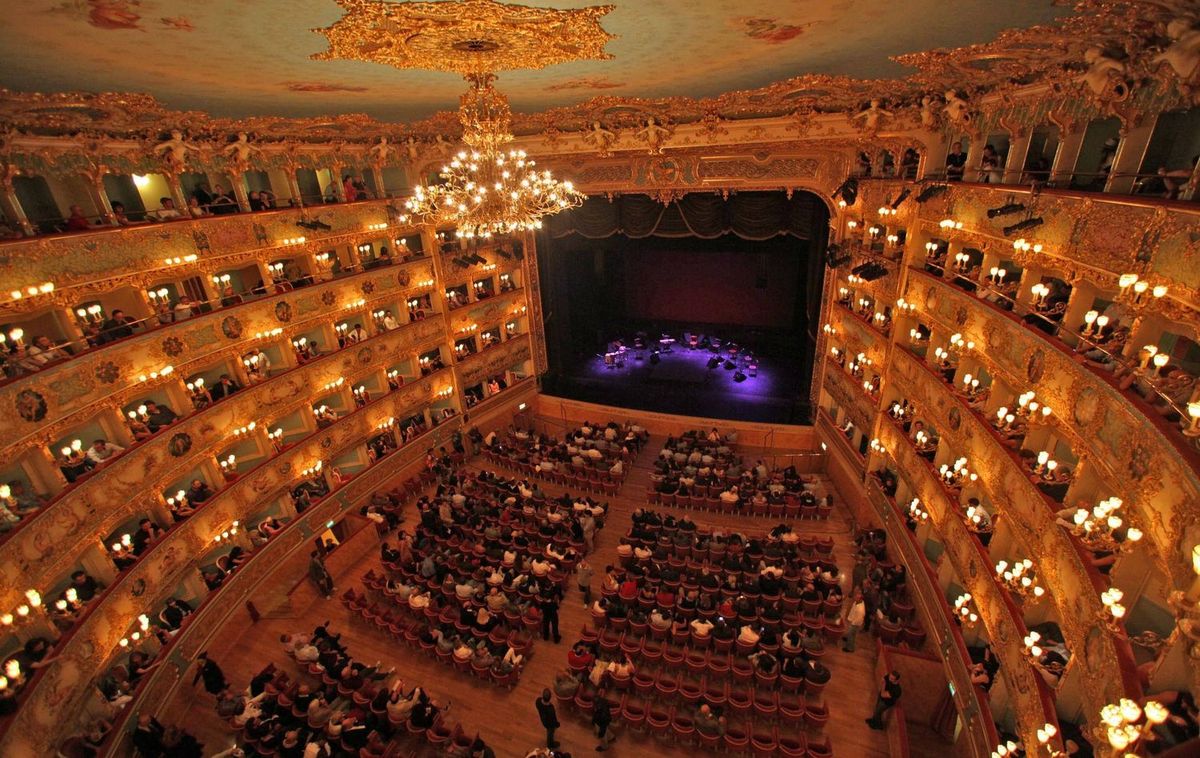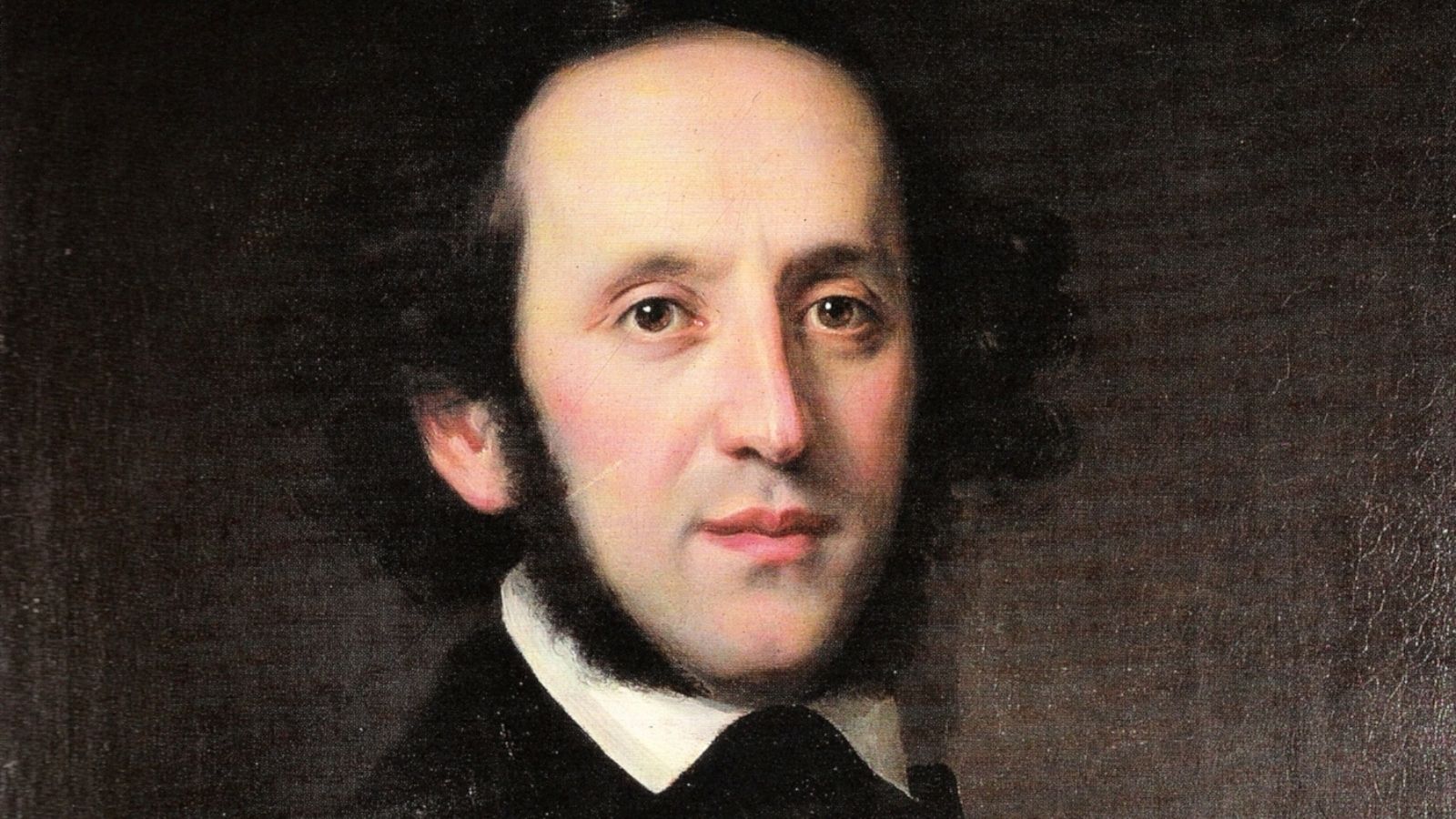Home>Production & Technology>Composer>Who Are The Most Famous Classical Composer
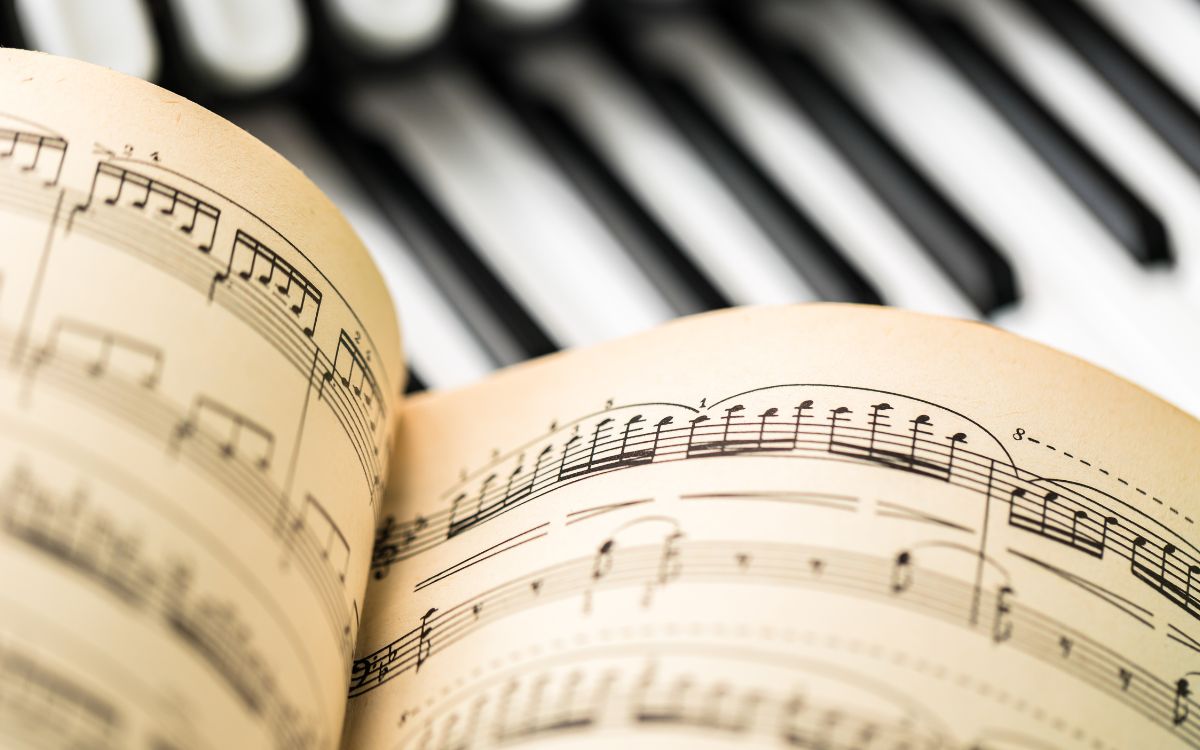

Composer
Who Are The Most Famous Classical Composer
Modified: January 22, 2024
Discover the most famous classical composer and their timeless masterpieces. Dive into the world of classical music and explore the legendary composers who shaped the genre.
(Many of the links in this article redirect to a specific reviewed product. Your purchase of these products through affiliate links helps to generate commission for AudioLover.com, at no extra cost. Learn more)
Table of Contents
Introduction
Classical music has captivated audiences for centuries, with its rich melodies, complex harmonies, and profound emotional depth. At the heart of this genre are the great classical composers, whose timeless works continue to inspire and move people to this day. In this article, we will explore some of the most famous classical composers who have left an indelible mark on the world of music.
These composers, through their incredible talent and innovation, elevated the art of classical music to new heights, shaping its development and leaving behind a legacy that continues to influence musicians and music lovers alike. From the Baroque period to the Romantic era, their compositions have stood the test of time and remain an integral part of the classical music repertoire.
Each composer showcased here possesses their own unique style, voice, and contribution to the classical music canon. Their esteemed works have transcended generations, provoking deep emotions and inspiring countless musicians throughout history. Join us as we delve into the lives and musical masterpieces of these remarkable individuals.
Ludwig van Beethoven
Ludwig van Beethoven is undoubtedly one of the most renowned and influential composers in the history of classical music. Born in 1770 in Bonn, Germany, Beethoven displayed prodigious musical talent from a young age. His extraordinary compositions, characterized by their emotional intensity and technical brilliance, continue to resonate with audiences worldwide.
Beethoven’s musical legacy can be divided into three distinct periods: the early period, the middle or “heroic” period, and the late period. In his early works, Beethoven demonstrated a mastery of the Classical style influenced by his predecessors, Haydn and Mozart. His compositions from this period exude a sense of clarity, balance, and elegance.
However, it was during his middle period that Beethoven truly pushed the boundaries of classical music. In works such as his Symphony No. 3, also known as the “Eroica,” and his Fifth Symphony, he introduced a revolutionary intensity and emotional depth, challenging the traditional conventions of the time. Beethoven’s profound deafness, which began in his late twenties, added an extra layer of complexity to his compositions as he struggled to express his innermost thoughts without the ability to hear.
In his later years, Beethoven embarked on daring musical experiments, pushing the limits of harmony, form, and structure. His Ninth Symphony, with its iconic choral finale featuring the “Ode to Joy,” remains one of the most celebrated and powerful works in the classical music repertoire. Beethoven’s compositions from this period are marked by their introspection, spiritual depth, and personal struggles.
Beethoven’s impact on music extends far beyond his compositions. He revolutionized the symphony, expanding its scale and emotional scope. His innovative use of counterpoint, harmonic progression, and thematic development set a new standard for composers of the time and laid the foundation for the Romantic era that would follow.
Despite the challenges he faced, Beethoven’s indomitable spirit and dedication to his art have made him an enduring figure in the world of classical music. His music continues to inspire and resonate with audiences, providing a profound glimpse into the depths of human emotion and the power of artistic expression.
Wolfgang Amadeus Mozart
Wolfgang Amadeus Mozart, born in 1756 in Salzburg, Austria, is considered one of the most prodigious musical geniuses in the history of classical music. From an early age, Mozart exhibited extraordinary musical talents, composing his first symphony at the tender age of eight and embarking on a prolific career that produced more than 800 works in his short life.
Mozart’s compositions spanned various genres, including symphonies, concertos, operas, chamber music, and choral works. His music is characterized by its elegance, gracefulness, and perfect balance. Mozart excelled in creating melodies that had a natural flow, combining intricate harmonies and masterful orchestration.
One of Mozart’s most renowned works is his opera “The Marriage of Figaro,” a witty and enchanting masterpiece that showcases his ability to compose both beautiful music and engaging storytelling. Another notable composition is his Symphony No. 40, with its haunting melodies and dramatic tension that continue to captivate audiences.
Mozart’s musical career gained him recognition and patronage from noble families and royal courts throughout Europe. His travels exposed him to a wide range of musical styles and influences, which he skillfully incorporated into his own compositions. He became known for his ability to effortlessly transition between different musical forms and genres.
Tragically, Mozart’s life was cut short at the age of 35, leaving behind an astonishing musical legacy. His unique musical language and extraordinary talent continue to inspire musicians and audiences alike. Despite the brevity of his life, Mozart’s contributions to classical music are immeasurable, and his impact on the development of the genre is undeniable.
Mozart’s compositions exhibit a timeless charm and a profound understanding of the human experience. His music is capable of evoking a range of emotions, from joy and excitement to melancholy and introspection. Through his intricate harmonies and expressive melodies, Mozart created a musical language that speaks to the soul.
Today, Mozart’s works are performed in concert halls and opera houses worldwide, enchanting audiences with their beauty and brilliance. His mark on the classical music world is indelible, and his influence continues to resonate with each generation of musicians who strive to capture his unique blend of technical mastery and emotional depth.
Johann Sebastian Bach
Johann Sebastian Bach, born in 1685 in Eisenach, Germany, is widely regarded as one of the greatest composers in the history of Western classical music. A master of counterpoint and harmony, Bach’s compositions are characterized by their complexity, intricate musical structures, and profound spiritual depth.
Bach’s musical career spanned the Baroque era, during which he composed an extensive body of works that encompassed various genres, including sacred music, orchestral suites, solo sonatas and partitas, and keyboard works. His music is known for its mathematical precision, intellectual depth, and emotional expressiveness.
One of Bach’s most famous compositions is the “St. Matthew Passion,” a monumental and emotionally intense choral work that narrates the story of Christ’s crucifixion. This composition showcases Bach’s remarkable ability to combine textual meaning with intricate musical writing, evoking a sense of profound religious devotion.
Bach’s keyboard music, especially his collection of preludes and fugues known as “The Well-Tempered Clavier,” remains a cornerstone of classical piano repertoire. These works demonstrate his mastery of counterpoint and harmonic progression, setting the standard for keyboard composition that continues to influence musicians to this day.
Bach’s mastery of polyphony and intricate musical structures contributed to the development of new musical forms and techniques. His compositions often feature multiple voices interweaving in complex and harmonically rich textures. His use of counterpoint and his exploration of tonal relationships have had a lasting impact on classical music.
Despite his profound musical achievements, Bach’s music did not receive widespread recognition during his lifetime. It was not until the 19th century, when composers like Mendelssohn and Schumann championed his works, that his genius was truly appreciated. Since then, Bach’s compositions have become revered for their technical brilliance and emotional depth.
Today, Bach’s music is performed and studied by musicians and music enthusiasts worldwide. His influence can be heard in the works of countless composers who have followed in his footsteps. Bach’s ability to express the human experience through music and his unwavering dedication to his craft make him a true giant in the world of classical music.
Franz Schubert
Franz Schubert, born in 1797 in Vienna, Austria, is considered one of the most important composers of the Romantic era. Despite his tragically short life, Schubert’s prolific output includes over 600 vocal works, symphonies, chamber music, and piano compositions, leaving an indelible mark on the world of classical music.
Schubert’s compositions display a remarkable gift for melody, harmonies that evoke deep emotions, and a keen sense of storytelling. His lieder (songs) are particularly renowned for their expressive beauty and ability to capture the subtleties of human emotion. Songs such as “Ave Maria,” “Erlkönig,” and “Die Forelle” are among his most beloved and frequently performed works.
In addition to his vocal works, Schubert’s chamber music compositions hold a significant place in the repertoire. His “Trout Quintet” and “Death and the Maiden” String Quartet are hailed as masterpieces that showcase his ability to combine lyricism, intensity, and technical brilliance. These chamber works demonstrate Schubert’s ability to create rich musical conversations within small ensembles.
Schubert’s musical language bridged the gap between the Classical and Romantic periods, blending traditional forms with innovative harmonies and dramatic textures. His compositions often radiate a sense of vulnerability, introspection, and melancholy, reflecting the complex emotions of the human experience.
Despite receiving limited recognition during his lifetime, Schubert’s musical prowess and innovative approach to composition influenced many composers who followed him. His ability to evoke deep emotions and create poignant musical landscapes set the stage for the Romantic movement, influencing composers such as Brahms, Mendelssohn, and Mahler.
Schubert’s legacy extends far beyond his musical achievements. His compositions continue to be celebrated and performed by musicians around the world, captivating audiences with their emotional depth and profound beauty. Franz Schubert’s unique voice and contribution to the Romantic era have earned him a place among the great composers of classical music.
Pyotr Ilyich Tchaikovsky
Pyotr Ilyich Tchaikovsky, born in 1840 in Votkinsk, Russia, is renowned as one of the most influential and beloved composers of the Romantic era. His music embodies the sweeping emotional expressiveness and rich orchestration characteristic of the Romantic style, captivating audiences with its dramatic intensity and lush melodies.
Tchaikovsky’s compositions span various genres, including symphonies, ballets, operas, concertos, and chamber music. His ballet scores, most notably “Swan Lake,” “The Nutcracker,” and “Sleeping Beauty,” have become timeless classics, enchanting audiences with their enchanting melodies, imaginative storytelling, and captivating dance sequences.
While Tchaikovsky’s ballets gained popular acclaim and recognition, his symphonic works also showcase his mastery of orchestration and melodic genius. His Symphony No. 5 and Symphony No. 6, also known as the “Pathétique,” are powerful and emotionally charged works that reveal Tchaikovsky’s ability to immerse the listener in a realm of profound emotion and beauty.
Throughout his career, Tchaikovsky faced personal struggles and internal conflicts. His music often reflects his own emotional turmoil and longing for connection. His compositions are marked by poignant melodies, surging climaxes, and moments of sublime beauty.
Despite the challenges he faced, Tchaikovsky’s music resonates with audiences on a deeply emotional level. His ability to capture and convey a wide range of emotions, from joy and ecstasy to heartache and sorrow, has earned him a place among the greatest composers in the classical music canon.
Tchaikovsky’s music continues to be cherished and widely performed in concert halls around the world. His compositions hold a timeless allure, drawing listeners into their evocative narratives and stirring melodies. Pyotr Ilyich Tchaikovsky’s profound impact on the world of classical music makes him a treasured figure whose music will be embraced and celebrated for generations to come.
Johannes Brahms
Johannes Brahms, born in 1833 in Hamburg, Germany, was a composer who bridged the gap between the Romantic and Classical periods. Known for his meticulous craftsmanship and profound musical depth, Brahms produced a body of work that encompassed symphonies, chamber music, concertos, choral compositions, and lieder.
Brahms’ compositions often display a sense of introspection, intricate harmonies, and a blend of Classical forms with Romantic expression. His symphonies, including his monumental Symphony No. 4, are characterized by their richness of orchestration, thematic development, and emotional complexity.
In addition to his symphonic works, Brahms made significant contributions to chamber music. His string quartets, piano trios, and sonatas showcase his mastery of counterpoint and his ability to create sophisticated musical conversations among the instruments. His “Ein deutsches Requiem” (A German Requiem) is a monumental choral work, deeply moving and spiritually profound.
Brahms was known for his perfectionism and meticulous approach to composition. He would often spend long periods of time refining his musical ideas before sharing them with the world. This attention to detail, combined with his innate musical genius, resulted in compositions of extraordinary beauty and depth.
Despite being influenced by the symphonic traditions of Beethoven and the expressive power of Romanticism, Brahms maintained a sense of classical balance and restraint in his music. This unique fusion of musical styles allowed him to create compositions that were both emotionally powerful and structurally precise.
Brahms’ music, although not always immediately appreciated during his lifetime, has since gained widespread recognition and admiration. His works continue to be performed and cherished by musicians and audiences worldwide, captivating listeners with their profound lyricism, intellectual complexity, and emotional range.
Johannes Brahms’ contribution to the world of classical music is immeasurable. Through his innovative compositions and unwavering dedication to his craft, he left an enduring legacy that continues to inspire and captivate lovers of music. Brahms stands as one of the great composers of the Romantic era, a master of musical form and emotion whose work will be celebrated for generations to come.
Franz Joseph Haydn
Franz Joseph Haydn, born in 1732 in Rohrau, Austria, is often referred to as the “Father of the Symphony” and the “Father of the String Quartet.” As one of the most influential composers of the Classical era, Haydn played a pivotal role in the development of musical forms and structures that would shape the future of classical music.
Haydn’s career spanned the transition from the Baroque to the Classical period, during which he composed over 100 symphonies, numerous string quartets, chamber music, operas, and choral works. His compositions are characterized by their elegance, wit, and profound musical craftsmanship.
Haydn’s symphonies, such as his “Surprise” Symphony and “The Clock” Symphony, showcase his mastery of orchestration and his ability to create ingenious musical surprises. His string quartets, including his Op. 76 set, are revered for their inventive melodies, intricate harmonies, and the balance of voices within the ensemble.
One of Haydn’s most famous compositions is his oratorio “The Creation,” an epic work that celebrates the story of the creation of the world. This monumental piece exhibits Haydn’s command of choral writing, rich orchestration, and dramatic storytelling.
Haydn’s wit and humor are evident in many of his compositions, particularly his symphonies and chamber music. He often employed unexpected musical gestures and playful musical phrases, delighting audiences with his imaginative and lighthearted approach to composition.
As a composer, Haydn was highly regarded during his lifetime and received patronage from noble families, including the Esterházys. His music set the standards for classical composition, particularly in the areas of symphony and chamber music.
Haydn’s profound influence on future composers, including Mozart and Beethoven, cannot be overstated. His innovations in form, harmonic language, and orchestration laid the groundwork for the musical developments that would follow. He served as a bridge between the musical styles of different eras, leaving an enduring mark on the world of classical music.
Franz Joseph Haydn’s contributions have stood the test of time, and his compositions continue to be celebrated and performed around the world. His extraordinary musical legacy cements his place as one of the greatest composers in history, forever cherished for his creativity, craftsmanship, and profound musical vision.
Igor Stravinsky
Igor Stravinsky, born in 1882 in Oranienbaum, Russia, is regarded as one of the most innovative and influential composers of the 20th century. His innovative approach to composition, rhythmic complexity, and bold experimentation with musical forms revolutionized the classical music landscape.
Stravinsky’s early works, such as “The Firebird,” “Petrouchka,” and “The Rite of Spring,” brought him international fame and defined the neoclassical style. These compositions challenged traditional harmonic and rhythmic conventions, captivating audiences with their explosive energy and vivid storytelling.
The scandalous premiere of “The Rite of Spring” in 1913, with its unconventional rhythms and dissonant harmonies, caused an uproar but also marked a turning point in music history. Stravinsky’s groundbreaking use of irregular meters and unconventional tonalities shattered traditional norms and paved the way for new musical possibilities.
In contrast to his early works, Stravinsky explored a more controlled and neoclassical style in his later compositions. Drawing inspiration from the music of the Baroque and Classical periods, he created works that retained a sense of clarity, balance, and elegance. Examples of this style include his “Pulcinella” and “Symphony of Psalms.”
Stravinsky’s versatile compositions extended beyond symphonic and ballet works. He also composed opera, vocal music, and chamber music, showcasing his mastery of various genres and his ability to adapt his distinctive musical language to different mediums.
Throughout his career, Stravinsky continually pushed the boundaries of musical expression. His willingness to experiment with different musical styles and techniques earned him a reputation as a musical innovator.
Stravinsky’s impact on music extended beyond his own compositions. He served as a mentor to numerous composers and influenced major musical movements, such as serialism and minimalism. His ability to blend tradition with innovation and create music that resonates with both intellectual depth and emotional power makes him a towering figure in the history of classical music.
Even after his death in 1971, Stravinsky’s music continues to inspire and challenge musicians and audiences alike. His relentless pursuit of new sounds and artistic exploration has left an enduring mark on the evolution of classical music and ensures his place as one of the greatest composers of the 20th century.
Richard Wagner
Richard Wagner, born in 1813 in Leipzig, Germany, is renowned as one of the most influential and controversial composers in the history of classical music. His profound influence on operatic composition and his notion of the Gesamtkunstwerk (total work of art) revolutionized the genre and significantly shaped the direction of music in the 19th century.
Wagner’s operas, such as “Tristan und Isolde,” “Die Walküre,” and his monumental four-opera cycle “Der Ring des Nibelungen” (The Ring of the Nibelung), are characterized by their epic scale, mythical themes, and seamless integration of music, drama, and poetry. Wagner intended for his operas to be a total sensory experience, where music, scenic design, and staging combine to create a unified and immersive theatrical event.
Wagner’s compositional style is marked by his use of leitmotifs, recurring musical themes associated with specific characters, objects, or ideas. These leitmotifs serve as a psychological and dramatic anchor, enhancing the storytelling and providing a deeper emotional connection between the audience and the characters on stage.
Wagner’s approach to harmony and form also departed from the conventions of his time. His use of chromaticism, unconventional chord progressions, and expanded harmonic language pushed the boundaries of traditional tonality, leading to groundbreaking musical innovations that would influence composers well into the 20th century.
While Wagner’s musical genius is widely acknowledged, his personal life and controversial views have often overshadowed his artistry. His writings on anti-Semitism and his association with German nationalism have generated significant debate and criticism. Nevertheless, his impact on the world of classical music remains undeniable.
Wagner’s influence extended beyond the world of opera. His theories on music and aesthetics, outlined in works such as “Opera and Drama,” continue to provoke discourse and shape musicological scholarship. His concepts of music drama and his vision for the synthesis of artistic elements have left an enduring mark on the evolution of opera and the broader realm of classical music.
Despite the controversy surrounding his legacy, Richard Wagner’s contributions to classical music are immeasurable. His innovative approach to opera and his concept of the Gesamtkunstwerk have forever transformed the art form, leaving a lasting impact on composers, performers, and audiences who continue to be captivated by his spellbinding works.
Conclusion
The world of classical music has been shaped and enriched by the contributions of various composers throughout history. From the timeless melodies of Ludwig van Beethoven to the revolutionary compositions of Igor Stravinsky, each composer brings a unique voice and perspective to the genre.
These famous classical composers have not only left behind a rich musical legacy but also pushed the boundaries of what was considered possible in their time. Their ability to create music that resonates with audiences on a deep emotional level is a testament to their talent and vision.
Whether it’s the profound emotional depth of Beethoven, the innovative harmonies of Mozart, the intricate structures of Bach, the melodic beauty of Schubert, the evocative storytelling of Tchaikovsky, the blend of classical and romantic elements in Brahms, the meticulous craftsmanship of Haydn, the bold experimentation of Stravinsky, or the immersive operatic experience of Wagner, each composer has made an indelible mark on the world of classical music.
Their works continue to be celebrated and performed by orchestras, opera companies, and chamber groups worldwide. Their music transcends time and connects with listeners in a profound and meaningful way.
Moreover, classical music owes its development to the remarkable contributions of these composers. Their creativity, innovation, and tireless pursuit of musical excellence have shaped the evolution of the genre and paved the way for future generations of composers.
As we reflect on the legacies of these exceptional composers, we are reminded of the power of music to touch our souls, provoke our emotions, and transport us to new realms of beauty and understanding.
Whether you are a seasoned classical music aficionado or just beginning to explore this timeless genre, engaging with the works of these famous classical composers is sure to be a transformative and rewarding experience. Their music truly represents the pinnacle of human artistic expression, and their legacies will continue to inspire generations to come.

